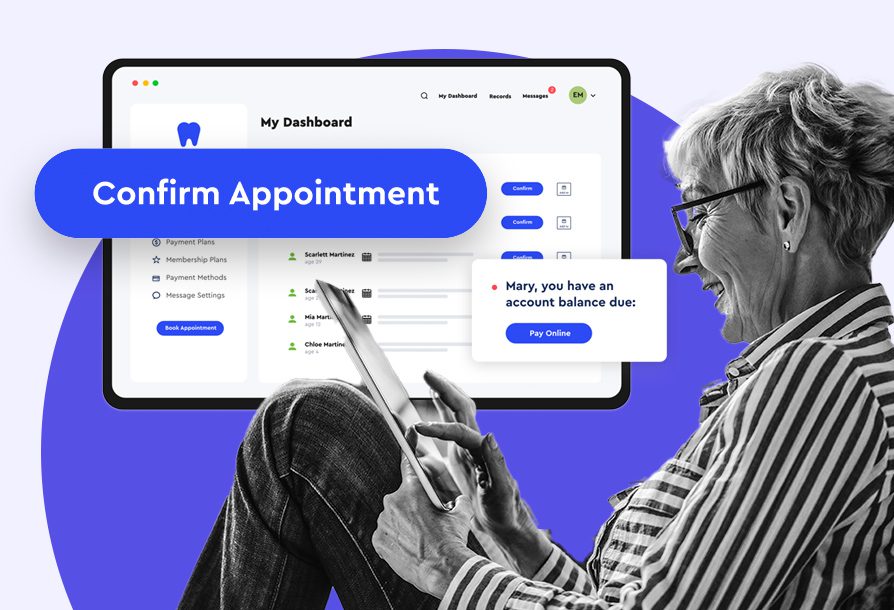
The Most Critical Phone Skills for Dental Offices
With all the amazing technology in dentistry today, it may be surprising to learn that most dental consultants consider the telephone to be the most important tool in the office.
According to Sandy, 72% of telephone calls that go to voicemail result in the patient hanging up! Every missed call is a missed opportunity, so voicemail should not be used during business hours.
Sandy’s firm, Classic Practice Resources, has been helping dentists achieve success for over twenty years. Below are tips from her about critical phone skills for dental offices during her lecture at the 2018 Dentaltown Townie Meeting in Orlando, Florida.
6 Critical Phone Skills for Dental Offices
Always answer the phone by the third ring: Anyone who has worked in the front of a dental office understands that it can get pretty hectic. It is important to train team members to prioritize answering the phone, even if they are currently with a patient. Receptionists must learn to politely ask for permission to take the incoming call if they are helping another patient. They can get the callers information and ask them if you can call them after they finish with the patient that they were working with prior to the call.
Answer the phone pleasantly and with genuine interest: It is not uncommon to call a dental office and have someone answer “dental office-please hold,” which is a huge turn-off to callers, especially if they are potential new patients to the practice. Each office should have a simple universal script for answering the phone. Here is a great example: “Thank you for calling Rocket Smiles Dentistry. This is Tammy. How may I help you today?” Scripts like this help ensure that your team is making a good first impression with callers – especially potential new patients. Be sure staff answers with a smile to successfully build relationships with callers.
Get the callers contact information: Early in the call, request the caller’s name, number, and email to ensure if the call is dropped, you can quickly get back with them. Be sure to get this information especially before putting the caller on hold! Which, by the way, should be avoided whenever possible.
Be a good listener: It sounds so simple, but the truth of the matter is that our multi-tasking culture has created an army of poor listeners. Ask questions and listen to the responses so patients and callers know that you genuinely care and want to help them. Conversely, if you are opening email or doing other tasks while on the phone, the caller will typically sense that you are distracted, giving an impression that you do not care and perhaps the practice is too busy to properly serve their needs.
Promote the practice and the doctor: Every team member should know about the services offered in the office and be able to answer a few common questions about procedures. It is a good idea to share with the team any continuing education classes that the doctors and hygienists have taken. This should allow team members to promote these services to callers. Patients appreciate the opinions that we share with them regarding our doctors’ personality and skills.
Invite the patient to schedule: While you might think that this is a no-brainer, Sandy’s research shows that only 45% of callers are actually invited to schedule an appointment. If you do not ask, people will not schedule. Many offices will invite patients who are not ready to schedule to come by the office to meet some of the team and see the facility. Patients want to know that you care about their comfort and will reward you with their loyalty.
How to Evaluate Your Dental Office’s Phone Skills
No one wants to be micromanaged, and as a dentist, you don’t have time to listen to every call the front desk takes.
That’s why MarketIQ, a dental software with call-tracking technology built in, is a great dental automation software that every practice should have. It’s a seamless way to track calls and evaluate your dental practice’s team performance.
Every call is recorded and automatically transcribed so team members and their managers can review and refine telephone skills. It is a good idea to listen to calls that went well in addition to those that did not.

Encourage team members to continually perform at their best by giving genuine appreciation for their efforts and teach them how to improve their performance. The best dental call-tracking systems will not work without proper follow-up and training. Market IQ from Practice By Numbers automates this process so that your team can incorporate these critical phone skills into your dental office and improve overall dental ROI performance.
To learn more about Market IQ, ask for a demonstration today.

